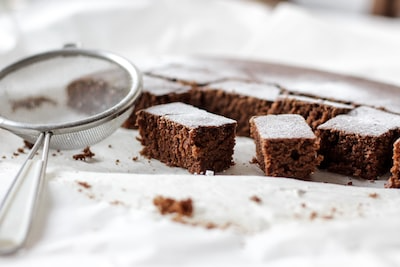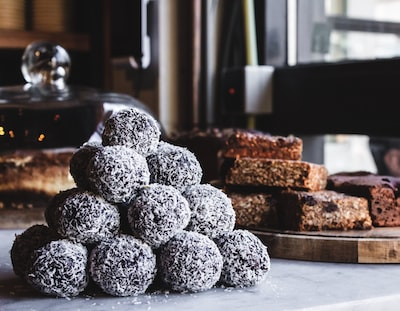Is dark chocolate keto? Many people who are adhering to the ketogenic diet have been wondering if dark chocolate is suitable.
Dark chocolate, with its rich flavors and health benefits, is often seen as a healthier alternative to other types of sweets.
The answer might surprise you.
In this blog post, we will dive deep into understanding the composition of dark chocolate, its carb content, and how to incorporate it into your keto lifestyle without disrupting ketosis.
We’ll also guide you in choosing the right type of dark chocolate for your keto diet. So if you’re wondering “is dark chocolate keto-friendly?”, keep reading!

Understanding Dark Chocolate Composition
If you’re a chocolate lover, it’s time to dive into the delicious world of dark chocolate.
Let’s start by understanding what makes up this delectable treat:
What constitutes high-quality dark chocolate?
The key is in the cocoa content.
A bar of high-quality dark chocolate will contain at least 70% cocoa. This means less sugar and more pure, unadulterated cacao goodness.
It’s like comparing an artisanal wood-fired pizza with a frozen one from your local supermarket – there’s simply no contest.
Flavonoid content comparison between high-quality dark chocolate and other antioxidant-rich foods
You might be surprised to learn that dark chocolate actually contains more flavonoids than some other well-known antioxidant powerhouses.
We’re talking about black tea, red wine, and even apples here. That’s right – your favorite indulgence could give these health superstars a run for their money.
How are net carbs calculated?
The secret lies in ‘net carbs’.
This figure is obtained by subtracting indigestible fiber from total carbohydrates. The result gives us the number of carbs our bodies can actually use for energy.
Comparison between carb contents of different types of chocolates
An ounce (28 grams) of 70-85% cocoa-containing dark chocolate carries around 13 grams of total carbs but only ten net carbs thanks to its fiber content. Compare this with milk or white chocolates, which often have much higher carbohydrate counts due to added sugars.
Incorporating Dark Chocolate into a Keto Diet
No need to abandon all hope yet, fellow chocoholics. Balancing consumption without exceeding the daily carb limit. Your beloved sweet treat can still find its place within your ketogenic lifestyle if managed carefully.
An ounce (28 grams) would contribute around 40% towards your total daily carb allotment based on standard ketogenic guidelines, which restrict intake to only up to five percent calories from carbohydrates.
Hence moderation becomes key when incorporating this delight into your keto regimen.
Rather than depriving yourself completely, why not enjoy small portions as part of a balanced eating plan?
Carb Content In Dark Chocolate
So, you’re a chocolate lover with an eye on the keto prize? You’ve come to the right place. Let’s break down those carbs in your favorite dark delight.
The Skinny on Net Carbs
Do you have an understanding of what net carbs are? It’s simple: total carbohydrates minus fiber equals net carbs.
This is because fiber isn’t absorbed by your body and doesn’t affect blood sugar levels like other carbs do. Healthline provides a great explanation here.
Comparing Chocolates: The Sweet Truth
All chocolates aren’t created equal when it comes to carb content. Milk chocolate has more sugars, hence more carbs, while high-quality dark chocolate (70-85% cocoa) contains less sugar and fewer net carbs due to its higher cocoa content.
What constitutes high-quality dark chocolate?
When shopping for keto-friendly snacks, opt for the darkest possible option; dark chocolate with at least 70% cocoa solids has less added sugar than milk or white chocolates, which usually contain no more than 50%.
So remember, when shopping for keto-friendly treats – the darker, the better.
Flavonoid content comparison between high-quality dark chocolate and other antioxidant-rich foods.
Did you know that, apart from being delectably luxurious, high-grade dark chocolate also contains a plethora of antioxidants referred to as flavonoids? These powerful compounds can help fight inflammation and boost heart health.
And guess what – ounce for ounce, this sweet treat packs more punch than black tea, red wine, or apples. Check out this study from NCBI for all the juicy details.
Incorporating Dark Chocolate into a Keto Diet
If we’ve whetted your appetite with talk of indulging in some guilt-free chocolate goodness while staying true to your ketogenic diet goals, let’s get practical about how much is too much?
Balancing consumption without exceeding the daily carb limit.
An average serving size (about one ounce) of 70–85% cocoa-containing dark chocolate carries up to 13 grams of total carbohydrates along with about three grams of dietary fiber, resulting in approximately ten net carbohydrates per serving.
If you follow a standard ketogenic diet where only five percent of calories come from carbohydrates, then eating just one small square could contribute around forty percent towards your daily carbohydrate allotment. So moderation, my friends… Moderation.
Incorporating Dark Chocolate into a Keto Diet
Let’s get into the specifics. You’re on a keto diet, and you have an insatiable sweet tooth that just won’t quit.
The Good News?
You can still enjoy dark chocolate. But hold your horses; it’s not as simple as grabbing any bar off the shelf. We’re talking about high-quality dark chocolate here.

Balancing consumption without exceeding the daily carb limit
So how do we balance this? Let’s break it down step by step:
- Know Your Daily Carb Limit: On a standard ketogenic diet, carbs should only make up 5% of your total calorie intake. That’s roughly 20–50 grams per day for most people.
- Analyze The Nutritional Label: Check out the nutritional information on the back of your chosen dark chocolate bar. An ounce (28 grams) of high-quality dark chocolate typically contains around ten net carbs after subtracting fiber content from the total carbohydrates present in it.
- Moderation is Key: If you are sticking to a lower end of carb intake, say 20g/day then consuming an ounce would contribute approximately half towards your daily allotment, which means other meals need to be carefully planned with minimal carbs.
This might seem like quite some work, but trust me, once you get used to reading food labels, understanding net carbs, and planning meals accordingly, – It becomes second nature.
A Quick Tip:
If you want to fit in more than one small piece or indulge occasionally without blowing through your entire day’s worth of carbs – consider opting for even darker chocolates i.e., those containing above 85% cocoa solids, since they will have fewer sugars and hence fewer net carbs compared to ones with a lower cocoa percentage.
Note:
Please remember that while being low-carb friendly, Dark Chocolate is also rich in calories, so don’t go overboard with portions if weight loss is part of your goals along with following the keto regimen.
Choosing the Right Type of Dark Chocolate for a Keto Diet
Don’t worry if you’re a chocolate lover and are starting on the keto diet; dark chocolate can still be enjoyed. You can still have your cake – or rather, dark chocolate – and eat it too.
The Magic Number: 70%
When scanning the shelves of your local grocery store or browsing online shopping sites, keep an eye out for dark chocolates with at least 70% cocoa solids.
This is not just a random number pulled from thin air; there’s some serious science behind it.
The higher percentage of cocoa solids means less room for added sugars, making these chocolates lower in carbs and more likely to fit within your dietary guidelines.
Nutrient Powerhouse
Besides being low-carb friendly, high-quality dark chocolate (read: minimum 70% cocoa) also packs beneficial nutrients like flavonoids known for their antioxidant properties.
In fact, dark chocolate can even compete with other sources of antioxidants like black tea and red wine.
Understanding Labels & Making Smart Choices
Picking up any old bar labeled ‘dark’ won’t cut it though. Remember that not all dark chocolates are created equal – some may contain hidden sugars or fillers that could sabotage your keto efforts.
Tips To Choose The Best Dark Chocolate For Your Keto Journey:
- Avoid products with sugar listed as one of the first three ingredients, this usually indicates a high sugar content.
- Steer clear from those containing trans fats or hydrogenated oils, which are harmful to health.
- Select brands using minimal ingredients; ideally only cocoa beans, sugar (or sweeteners), and possibly vanilla and lecithin.
- Favor bars made with natural sweeteners, such as stevia or erythritol, over artificial ones.
Moderation Is Key
No matter how healthy something might be deemed, if consumed excessively, it can lead to problems down the line. This rule applies even when we talk about high-quality dark chocolate on a ketogenic diet.
FAQs in Relation to Is Dark Chocolate Keto
Is dark chocolate compatible with a keto diet? Absolutely, high-quality dark chocolate with at least 70% cocoa solids can be included in a keto diet because it has fewer carbs.
Is dark chocolate a healthy carb? You bet. Dark chocolate is considered a healthier source of carbs because it contains beneficial nutrients like flavonoids. Check out these dark chocolate nutrition facts to learn more.
How many carbs does real dark chocolate have? A one-ounce serving of 70%-85% cacao solid, unsweetened dark chocolate typically contains around 13 grams of carbohydrates. Get all the details from USDA FoodData Central.
Why aren’t some types of chocolate suitable for the keto diet? Well, milk and white chocolates often have higher amounts of added sugars, which increase their carbohydrate content and make them less keto-friendly.

Conclusion
Understanding the composition and carb content of dark chocolate is crucial for keto dieters.
High-quality dark chocolate with a high percentage of cocoa solids and low sugar content can be considered keto-friendly due to its lower net carb count.
It also contains flavonoids that provide antioxidant benefits comparable to those of other antioxidant-rich foods.
When incorporating dark chocolate into a keto diet, balance consumption within the daily carb limit.
Be mindful of portion sizes and choose darker varieties with minimal added sugars. By making informed choices, you can enjoy the indulgence of dark chocolate while staying on track with your keto lifestyle.
